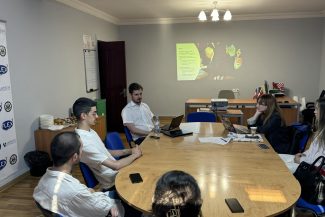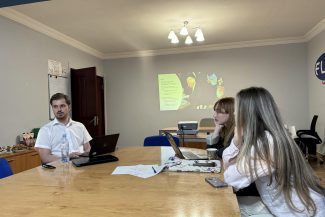On July 15, another work-in-progress presentations of the policy brief and public discussion were held at the Public Policy Analysis Hub (PPAHub) of the Georgian Institute of Politics.
Anano Arveladze presented her policy brief titled “Georgian Asylum Seekers in Europe: An Increased Threat to Georgia’s Visa Liberalization Process.” Her analysis highlighted the significant increase in Georgian asylum seekers in the EU since the initiation of the visa liberalization process in 2017. Notably, Germany and France have received the majority of these applications over the past decade. With an approval rate of only 3-4%, these applications are often viewed as “bogus” by EU member states, potentially endangering the visa-free regime with Georgia. Arveladze’s research identifies key reasons for the emigration of Georgian citizens, including healthcare issues, economic hardship, violence against women, and discrimination against sexual minorities. Her policy brief concludes with recommendations for the Georgian government, civil society, and media on regulating migration flows and addressing the root causes driving this exodus.
Luka Kiliptari presented his paper, “State Funding for Religious Organizations in Georgia: Current Practices and Alternative Models.” Kiliptari examined the state’s funding of five religious organizations, ostensibly to compensate for Soviet-era damages. However, he argues that the current model functions more like a budgetary subsidy, which is both discriminatory and allows government influence over-funded organizations. His analysis, which draws on a range of sources, including reports, official documents, and interviews with international experts, also explores alternative funding models used in Western countries. Kiliptari’s policy brief offers recommendations for establishing a new system of financing religious organizations in Georgia, emphasizing principles of fairness and independence.
The event was held within the framework of the project –“Public Policy Pilot Initiatives to Engage and Mentor Youth” which is implemented by GIP with the support of the USAID National Governance Program.




